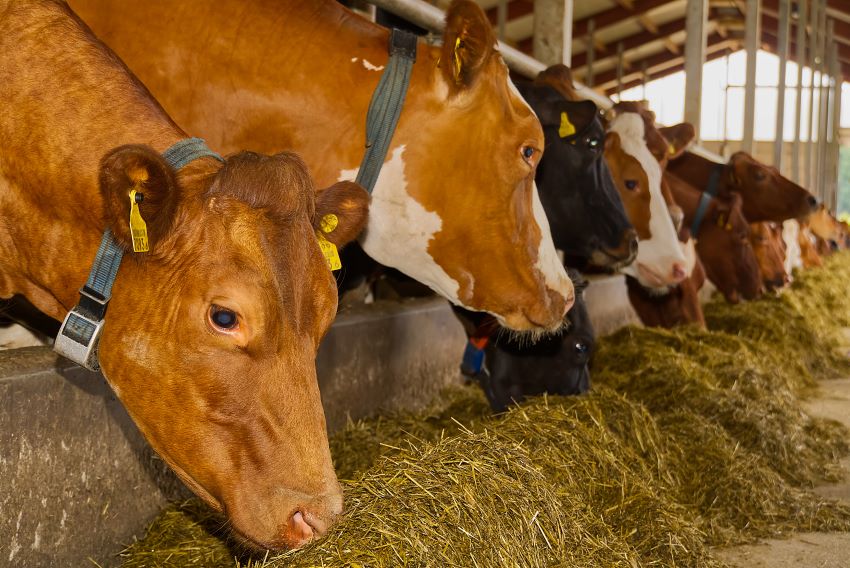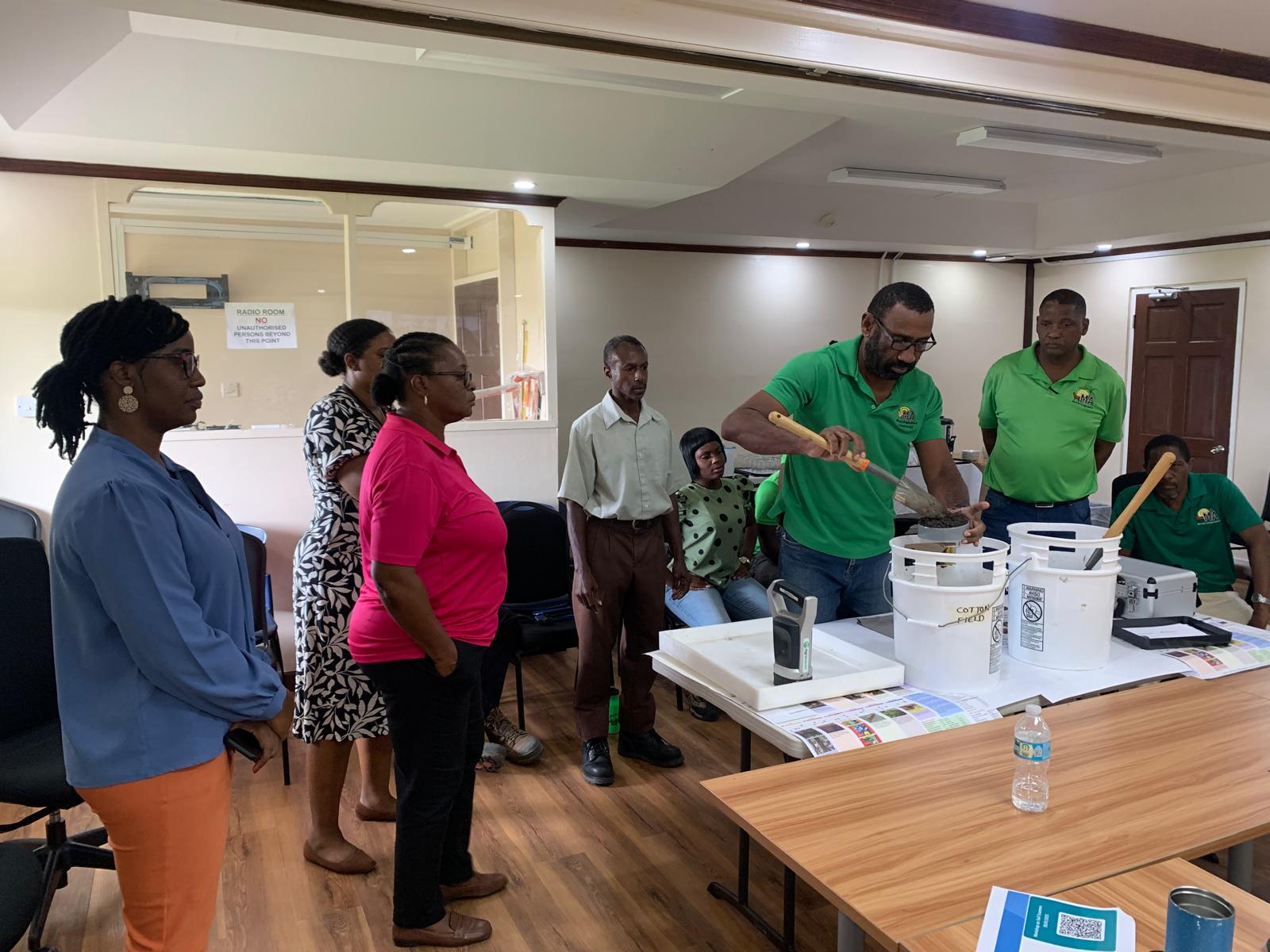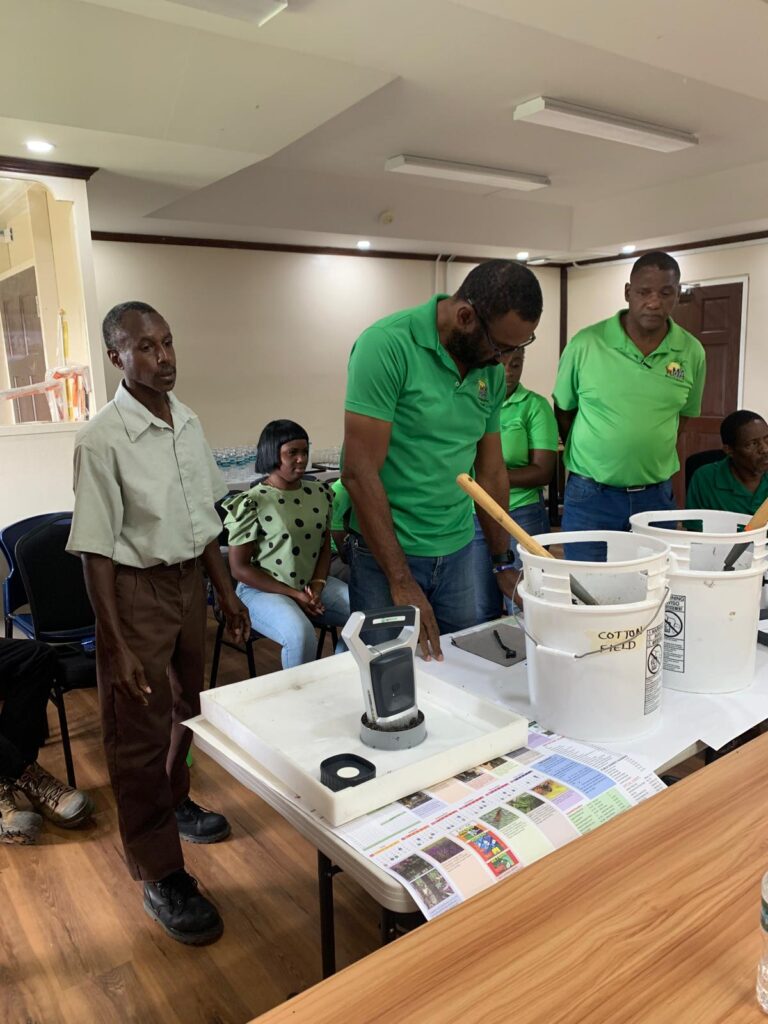CARIBBEAN AGRICULTURE FAO – Peter Richards
Latin America and Caribbean (LAC) countries have been able to reduce hunger among their populations last year, even as it increased significantly from 2019 to 2021 and the world has gone back 15 years, with hunger levels comparable to those of 2008-2009.
“The good news, if we can have a good news, is that Latin America and the Caribbean is the only one region to reduce hunger in the report that we presented during G20 (an intergovernmental forum comprising 19 sovereign countries, the European Union (EU), and the African Union (AU) and last year in the report that we presented in July in the United Nation in New York,” Mario Lubetkin, the Assistant Director General of the UN Food and Agriculture Organization (FAO) told the Caribbean Media Corporation (CMC) in an exclusive interview.
The “State of Food Security and Nutrition (SOFI) in the World,” which is an annual flagship report jointly prepared by FAO, the International Fund for Agricultural Development (IFAD), UNICEF, the World Food Programme (WFP) and the World Health Organization (WHO), showed that the percentage of hunger in Latin America and the Caribbean had risen from 5.6 per cent in 2019 to 6.9 per cent in 2021, but that there is a progressive reduction, reaching 6.2 per cent last year.
Mario Lubetkin, the Assistant Director General of the UN Food and Agriculture Organization (FAO) during his interview with CMC (CMC Photo)
Lubetkin said that this means that during the last two consecutive years, 4.3 million people have been recorded to stop suffering from hunger, mainly thanks to a recovery in South America.
“It’s good news, but we cannot be satisfied, because in the region, we are talking about 41 million people with hunger. So 4.3 million, it’s good news, but it’s not the news that we are waiting in the framework of, therefore, that all of us are doing to try to go to zero hunger in Latin America, the Caribbean,” he said, adding “we are so far than that sphere”.
Caribbean Community (CARICOM) countries have embarked upon an initiative to reduce their food import bill by 25 per cent by 2025 and in the process growing and producing much of the foods being imported into the region.
In March this year, Guyana’s President Dr. Irfaan Ali, who is spearheading the CARICOM initiative as the regional with lead responsibility for the agricultural sector in the quasi CARICOM cabinet, said the goal is currently at 70 per cent completion.
“A recent review, in February of 2024, puts our progress at close to 70% of our objective since starting the initiative three years ago,” he said then.
But the communique that followed the CARICCOM summit held in Grenada at the end of July, noted that by the first quarter of 2024, regional countries had recorded a 30 per cent achievement of targets set and a 12 per cent decline in real imports, equal to a quarter of a billion (US) dollars.
The summit also noted the development of a Regional Youth in Agriculture Strategy and the launch of the Regional Economic Agri-Insurance Programme (REAP) as positive steps toward building resilience and production.
In addition, the regional leaders also urged regional financial institutions to provide a special programme of support to the agriculture stakeholders and enterprises towards recovery and rehabilitation of the sector.
They also agreed to the adoption of a regional resilient Farmstead- Shadehouse Model geared towards the economic improvement of rural family farms. This model is adaptable to the specific circumstances of particular member states, according to the communique.
Lubetkin welcomes the CARICOM initiative to reduce the food import bill by growing the foods needed by its population saying the FAO is “talking with many countries in the region to try to facilitate process, to try to substitute import from outside to be produced here in the region”.
He said that he has already held discussions with officials in Guyana, Trinidad and Tobago, and The Bahamas.
“I met all the Prime Ministers of CARICOM two years ago. So we are working very closely…the point is this proposal to reduce imports, food imports, it’s a big challenge in which they are no one solution. There are many solutions”.
He gave as an example a world-wide project that is aimed at trying to better understand the production capacity in each country of the world.
Lubetkin said there is consensus to prepare “a big project about irrigation…because most of the countries in this region understand that irrigation is one of the key issues to try to prepare the condition…to increase or to develop the capacity of producing food”.
He said the project will be presented during the World Food Week that will be held at the FAO headquarters in Rome, October 14-19 this year bringing together various stakeholders including investors, banks and donors.
“I hope that that will be a very important moment to start a process in which we can have, together with the governments of the Caribbean…go in some points that are clever, that is managing water in the framework of increased capacity at the same time.
“To be very frank, we started to discuss with some governments, especially in South America, in which there are some food production problems, to try to understand how they can support, technically, investment, private and public, here in the Caribbean, because we don’t need to wait only from Europe, from China.
“That’s important. But we need to understand what we can do in the same region to try to develop better capacity together,” Lubetkin told CMC, noting that the latest FAO global report also indicated that in Central America for example, “climate change is a very, very big problem, like in the Caribbean, in which they invested a lot, but they couldn’t reduce the number of people with hunger.
“They didn’t increase, but it could reduce, like in South America, and in the Caribbean where there are many problems, like in other regions. But, you know, we can say climate change…and many other aspects in which the trend continues to increase hunger in this sub region.”
Lubetkin told CMC these are the issues he raised with some government in South America, underscoring the point that there is need for closer collaboration between Central, Latin and South America and the Caribbean.
“We need to increase the level and the impact of the project to try to create real impact for the region. This is an incredible region. This is a rich region. And I think that all of the region, Latin America, especially, need to support better the Caribbean, because we have the possibility in this region to have a concrete, successful example, that is possible to change the realities you alone, or no one alone, can do that. “
He said “something that we are talking in Latin America and in the Caribbean is to share better knowledge about food production, to share innovation, to share technology, not necessarily is money, because all this issue that I’m talking to it’s money, and direct innovation is money.
“Technology is money. Knowledge is money. So that’s the point in which it is critical that the other side of this region need to be more active.
“The region needs support from outside, but the point is to work inside, to prepare that what we are doing now, I want to put an example – 70 per cent of the trade of food in the world come from Latin America and the Caribbean,” Lubetkin told CMC, adding “we don’t say that we need to reduce this.
“What we say is maintain increase globally, but increase a little bit in the same region,” he said, hoping that countries in the region developing the same approach to food security, could help in that regard.
“I think that can be a good solution, if the development market in the region can invest here, that can support, for example, private player from the region, supported my finals here, linked with the strategy that you are doing, I think that is a quality change that we need….
The SOFI report showed that at the subregional level, hunger affected 5.2 per cent of the population in South America, 5.8 per cent in Mesoamerica and 17.2 per cent in the Caribbean.
In 2023, moderate or severe food insecurity in Latin America and the Caribbean was 28.2 per cent, slightly under the world’s average of 28.9 per cent and although it still affects 186.7 million people, 19.7 million managed to overcome this situation, in comparison to 2022.
A topic of attention is the double burden of malnutrition: obesity in adults shows an increase from 22.4 per cent in 2012 (91.4 million) to 29.9 per cent in 2022 (141.4 million). Mesoamerica is the subregion with the highest prevalence of obesity, standing at 34.4 per cent, followed by South America with 28.6 per cent and the Caribbean with 24.5 per cent.
Overweight in children under the age of five has escalated steadily since 2012, when it was 7.4 per cent (3.9 million), to 8.6 per cent in 2022 (4.2 million). This increase is mainly explained by what was observed in South America, where the prevalence stood at 9.7 per cent in 2022, almost two percentage points above 2021 levels.
In Latin America and the Caribbean, the cost of a healthy diet reached 4.56 purchasing power parities (PPP) dollars (One PPP dollar=US$0.007) per person per day in 2022, representing an 11.8 per cent increase compared to the value in 2021.
Caribbean governments have complained in the past of the various impediments that have hampered the socio-economic development of their countries, including trading intra regional trade and the decision by developed countries as well as international financial institutions to use other policies in making concessionary loans available to them.
Recently, Dominica’s Prime Minister Roosevelt Skerrit, addressing a symposium on agriculture for young people from the sub-regional Organisation of Eastern Caribbean States (OECS), spoke of the need to remove the various barriers to trade, particularly in agricultural products.
But, Lubetkin told CMC that his call for greater collaboration with other countries in the region, must be viewed differently, saying “for me, the most important thing is to start a new process…
“We have a new generation in the Caribbean, well prepared than others, than my generation, and we need to take in consideration very carefully this new approach with the new generation. But I want to highlight two examples in which I think and I’m optimistic, that we are going that way. I’m not saying that will be tomorrow”.
He said the Community of Latin American and Caribbean States (CELAC), a regional bloc of 33 Latin American and Caribbean countries had decided when St. Vincent and the Grenadines held the presidency of CELAC to approve by acclamation a new plan.
“So the new security plan, food security plan for the region, for 2024 to 2030. You can say that this is enough. No, it’s not enough,” he said, noting that CELAC has started a process in which all the 33 countries agree to try to build the process of security “because…this sustainable development goal theory need to conclude in 2031 to transform the world with zero hunger and zero poverty”.
He said he has been visiting several Caribbean countries signing an agreement for closer collaboration between the region and the FAO.
“But I want to say the following, in the last two years in the Caribbean, we signed this agreement. So, four years agreement. So, we do a long term policy. Because one of the problem that we all have…we run all the time for emergencies, and emergencies will not resolve the problem.
“We need to manage emergencies, emergencies in poverty, emergencies in climate change, but the same time, we need to to think beyond the emergencies to create resilience,” Lubetkin told CMC, adding “in these two years, I signed eight agreements in the region”.
“So, we are talking about nine countries in which together we discuss policy that go beyond what is happening today,” he told CMC.

 Sports5 days ago
Sports5 days ago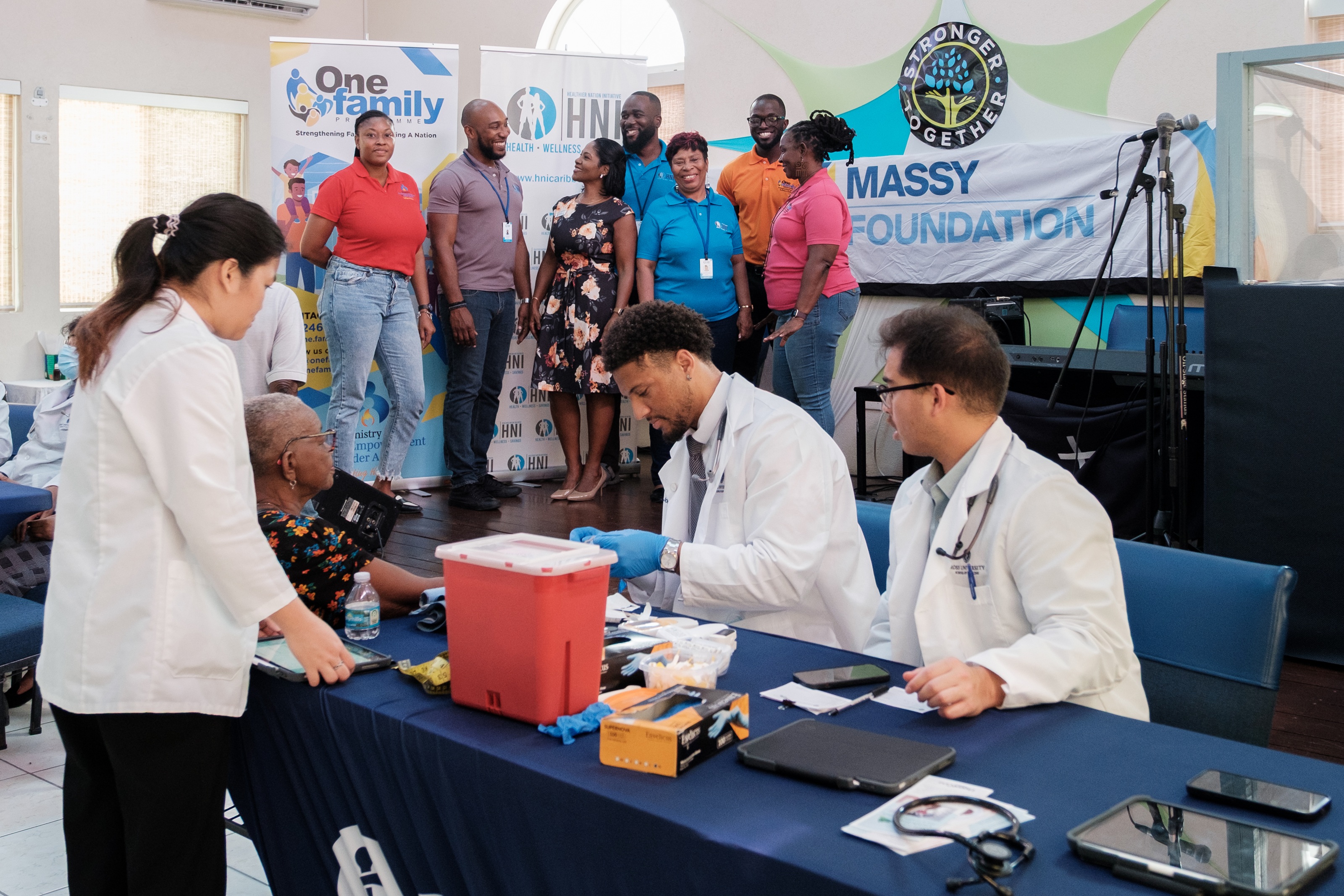
 Government2 weeks ago
Government2 weeks ago
 Features2 weeks ago
Features2 weeks ago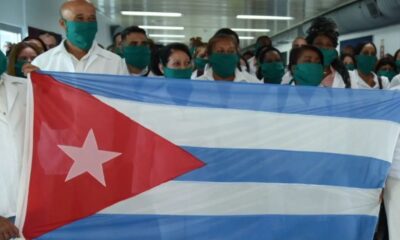
 International3 weeks ago
International3 weeks ago
 Business3 weeks ago
Business3 weeks ago
 Lifestyle2 weeks ago
Lifestyle2 weeks ago
 Education2 weeks ago
Education2 weeks ago
 Government2 weeks ago
Government2 weeks ago






